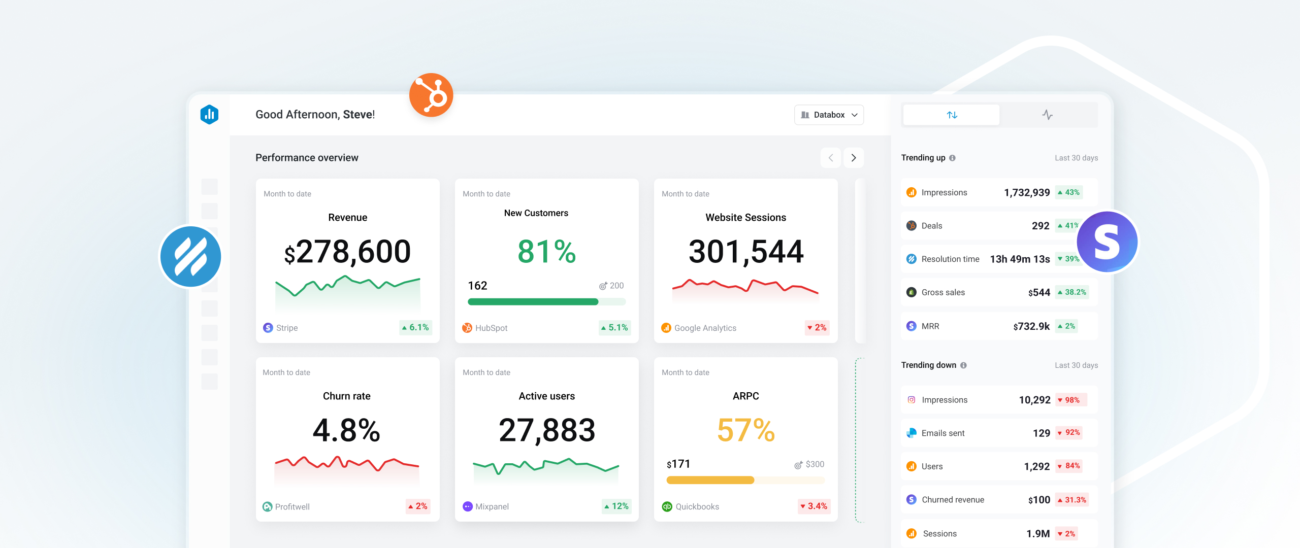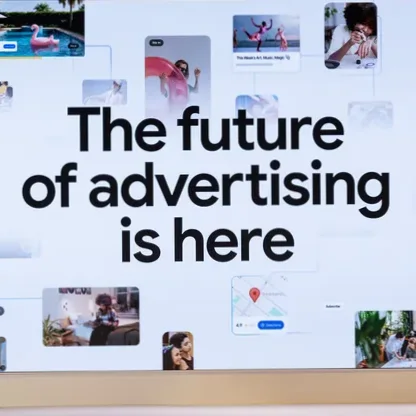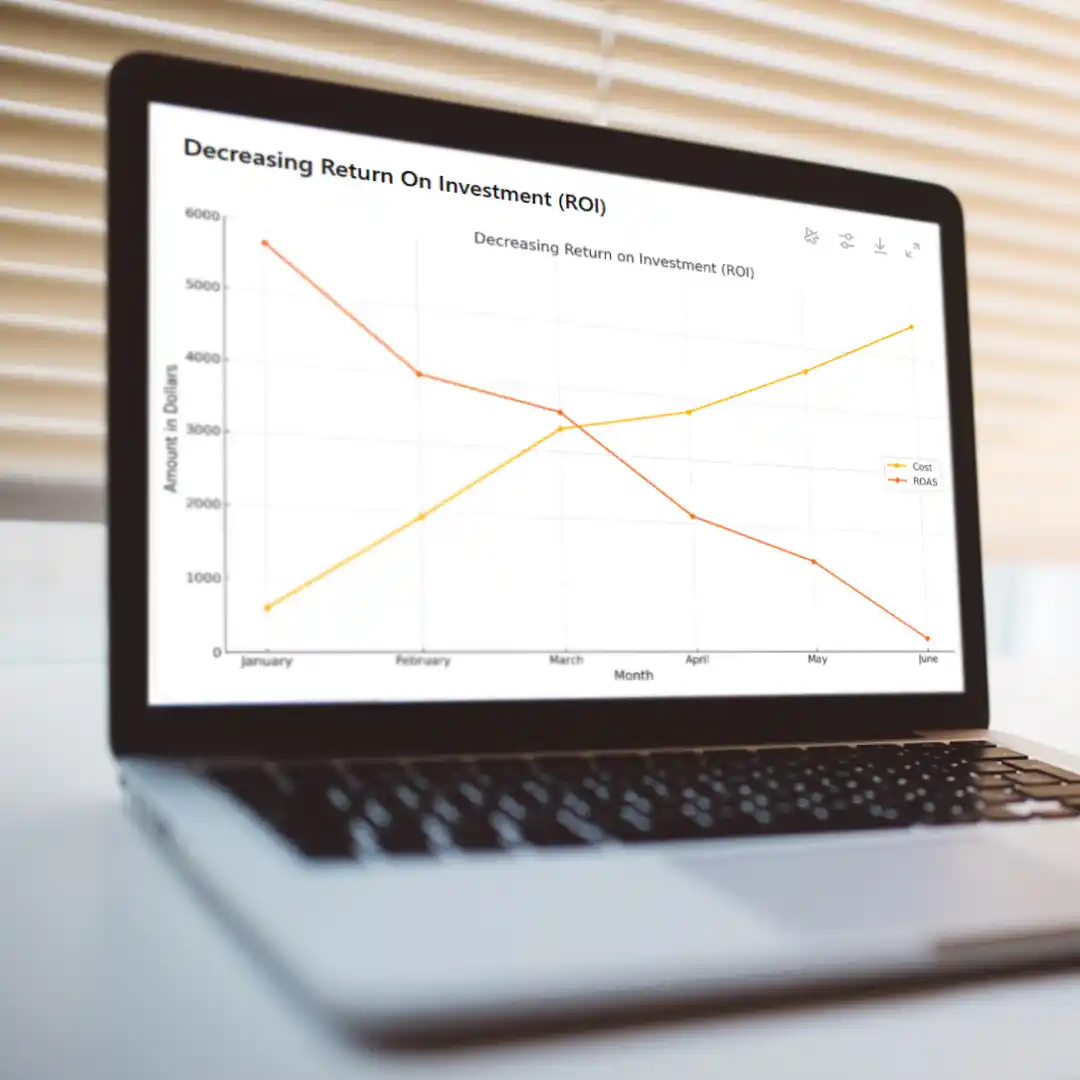Internet Marketing Methodology
The two main goals of Internet marketing are to create awareness for your products or services and then convert that interest into business opportunities. For two decades, Market Vantage has helped organizations accomplish these goals.
In addition to web-based promotion and lead generation, your Internet marketing strategy may include reducing operational costs, increasing customer loyalty, partner or channel development, and market analysis. Because we are experienced and versatile marketing pros, we can share our many years of experience in these areas with you to help you make wise choices and avoid the many common pitfalls.
Our methodology can be summarized as follows:
- Define business goals, target audiences, and messaging per audience
- Measure existing Internet presence and programs
- Define / refine Internet marketing strategy
- Implement
- Measure results

Internet Marketing Goals, Target Markets and Strategy
We always begin our client relationships by asking a lot of questions. For example, what are you selling? What are the various buyer personas? What “pain” are potential customers experiencing that your product or service addresses? How do they typically find out about products or services like yours? If buying decisions involve more than one person, what are their roles? Who is your competition and what are their strengths and weaknesses? What are your unique competitive advantages? Who are your potential partners or affiliates?
Define / Refine Internet Marketing Strategy
Once we understand the fundamentals of your business, we explore how you could better leverage the Internet to enhance your sales and marketing efforts. Who are the audiences / personas that should visit your website, what is your message to each audience, and what do you want each audience to do before leaving your site? Are you tracking visitors to your site and measuring the results of your online campaigns? When a sale is made, can you attribute that sale back to the campaign or campaigns that triggered the initial visit or contact?
Implementation
Part of our value to you is our experience with Internet marketing technologies, vendors, ad platforms, and best practices. We draw on this experience to develop a plan and provide implementation support from assistance to full development if you need it. Some of our clients want to handle all or part of the implementation themselves, and that’s fine with us. We work as your partner and bring in our team of digital marketing strategists, copy writers, ad platform experts, web developers, and technical talent as needed. We remain intensely focused on limiting your costs and maximizing your profits through our work.
Measurement
One of the advantages of Internet marketing is the quick availability of results from your campaigns. The results of even a minor tweak to your website, for example to increase conversion rate, can often be seen in a matter of hours or days, making it easier to fine-tune and incrementally improve your site and your campaigns. Given this fact, it’s surprising how few companies actually have an effective process in place to measure the results of what they’re doing and feed that information back into the cycle. Market Vantage can implement the measurement technology, figure out “what it means,” and provide you with the resulting observations and recommendations to help you continuously improve your company’s Internet marketing performance.
Let us assess your website traffic needs and determine the best set of website marketing programs to achieve your desired results. Please contact us in confidence by calling +1-978-482-0130 or completing our Information Request Form.
Newsletter Sign-Up
Sign-up for our VantagePoint newsletter to get insider tips from our team of agency experts on SEO, PPC, Web Analytics, marketing automation, and Social Media Marketing.
Free Download: Marketing Automation Playbook
Get the ultimate guide to marketing automation
The Power of Marketing Scorecards: Aligning KPIs with Business Objectives for Enhanced Performance
The Power of Marketing Scorecards: Aligning KPIs with Business Objectives for Enhanced Performance Marketing teams have always faced the challenge of demonstrating their impact on overall business success. Now, more than ever, results need to be measured accurately and reported instantly. One effective way to achieve these mandates is through the use of marketing scorecards. Scorecard tools not only help in measuring key performance indicators (KPIs) but also ensure that marketing efforts are aligned with sales and broader business objectives. Done correctly, they add visibility but not overhead—day-to-day use of marketing systems and processes delivers scorecard reporting automatically. By leveraging…
Google’s Latest AI Innovations Are Startlingly Good
Google’s Latest AI Innovations Are Startlingly Good—Here’s Why It Matters to Your Business Google Marketing Live 2025 didn’t just deliver another tech update—it unveiled a transformation. Let’s unpack what these groundbreaking updates really mean for your marketing strategy. Google’s AI is Your New Co-Strategist Gone are the days when AI was merely an assistant. Google’s latest round of updates is remarkably powerful, smarter, and feels distinctly human. Think about an AI capable of autonomously running your campaigns, dynamically adjusting bids, or crafting compelling creative assets on its own. Marketing Advisor, for instance, is a new AI agent that lives right…
Supercharge Your SEO: How to Use AI for Keyword Research
Supercharge Your SEO: How to Use AI for Keyword Research For businesses seeking to amplify their online presence, keyword research remains the bedrock of any successful search engine optimization (SEO) strategy. However, the digital landscape is becoming more competitive. Traditional methods of sifting through spreadsheets and analyzing search volumes can be time-consuming and may not fully capture evolving search trends or user intent. Artificial intelligence (AI) offers a powerful way to streamline and enhance your keyword research, unlocking opportunities to reach your target audience more effectively. The AI Advantage: Precision and Efficiency AI tools offer a more holistic approach to…
Digital Advertising Cost Effectiveness: Recent Trends and Google’s Impact
Digital Advertising Cost Effectiveness: Recent Trends and Google’s Impact Digital advertising is increasingly costly, and return on investment (ROI) has notably declined since 2022. The consensus among industry analysts is that digital advertising effectiveness continues to face pressure from increased competition, privacy changes, algorithm updates, and the integration of AI in search results, which collectively diminish both organic and paid visibility while increasing costs. The average cost of acquiring a customer through Google Search ads has increased by approximately 27% between 2022 and late 2024 according to data from the Interactive Advertising Bureau (IAB). Merkle reports that Google Search pure cost-per-click…
Common Mistakes to Avoid When Implementing AI in Your SEO Strategy
Common Mistakes to Avoid When Implementing AI in Your SEO Strategy 1. Over-Reliance on AI What it is: Relying too heavily on AI-generated content without human checks or edits. It is tempting, of course. New generative AI models are being released continuously, and many of them are quite good at research and drafting of content. Some systems can even suggest edits to optimize your content to rank for targeted keywords. Why it’s a problem: AI can make factual errors, produce uninspired text, and overlook nuances. Google warns against publishing unedited AI content and will lower your rankings when it finds…
Growth Potential of AI Agents in Marketing
Growth Potential of AI Agents in Marketing Imagine a new world where half of your marketing team is comprised of AI agents that handle specific aspects of your marketing. These artificial teammates are able to act and respond just like any other qualified marketing employees would. And while this may seem like a far-fetched future that we only get to see in new sci-fi shows, this may become our reality sooner than we think. Artificial Intelligence (AI) agents are already available and are ready to revolutionize growth marketing by transforming how we manage customer data, enhance the customer journey, and…






